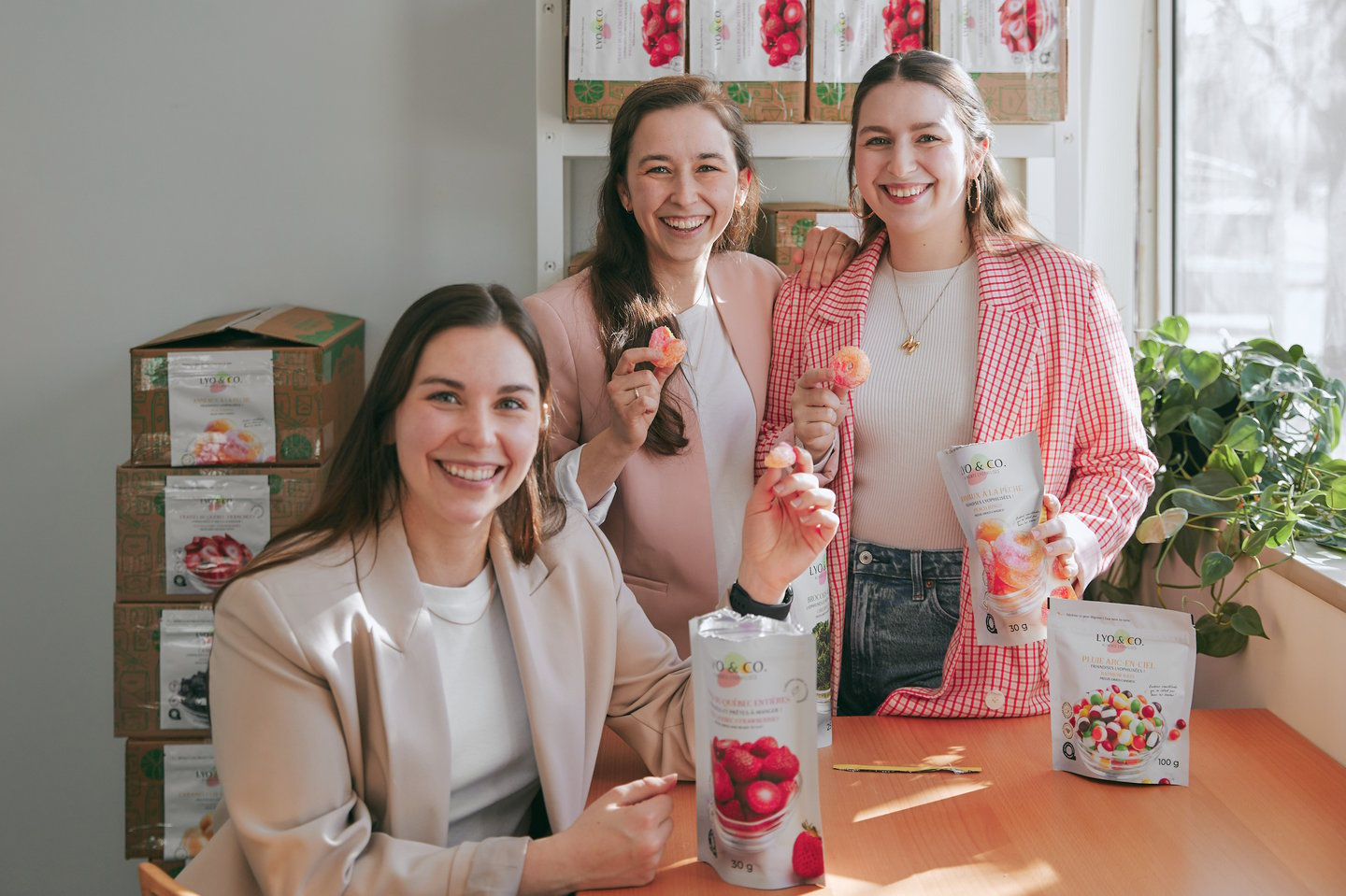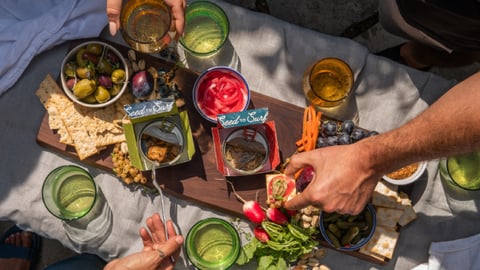IGA category director talks success of Local Accelerator program
A company that makes salt sourced from the St. Lawrence River and a carrot-infused sausage maker are among the nine Quebec businesses chosen for the second cohort of IGA’s Local Accelerator program.
Launched in 2022, the initiative by the Sobeys banner provides support to promising Quebec companies and helps them get their products on shelves at IGA stores across the province.
“We are looking for (entrepreneurs) that can energize the industry, be different and have the potential for growth within our stores,” says Caroline Auger, category director at IGA.
This year, nine companies were chosen from about 100 applicants.
The companies selected for this year’s Accelerator program are: organic and sustainable menstrual product company Alea protection; maple product company Aux petits plaisirs; carrot-based sausage maker Carrot Dogs; freeze-dried snack company Lyo et co; paella maker Paella Marisol; natural household product company Planette produits écologiques, which makes its products in a zero-waste facility; salt flake company Sel Saint-Laurent, which sources its salt from the St. Lawrence River; gourmet pastry company Si petit soit-il; and Silknsoak, which makes vegan products for the shower.
This year’s participants hail from the Montreal area as well as Montérégie, Centre du Québec, Estrie and Côte Nord regions.
“We’re really excited to start this new cohort and have all these passionate entrepreneurs that will work with us,” Auger says.
The $1 million annual program is designed to support Quebec companies, primarily in the agri-food industry, as they develop their products in order to reach a larger audience. Companies are aided with business consulting, product positioning, marketing, branding, merchandising, distribution and more.
“We help them with the challenge of launching a product,” Auger says, noting young companies often have limited resources and need help with everything from packaging and nutritional labeling to increasing their production capacities.
Participants partner with experts from various departments of IGA, such as operations, marketing and merchandising, and receive individualized training that varies, depending on their needs.
For its inaugural edition in 2022, IGA partnered with Mycélium, a food processing incubator that supports startups, and Université Laval’s Institute of Nutrition and Functional Foods, which helps entrepreneurs find solutions to product development issues.
While the aim was to have about 10 companies in the first cohort, there was an “enormous” number of applicants – about 200 – and 18 were chosen, Auger says.
So far, five of the companies chosen for the first Local Accelerator are selling their products in IGA stores: Tigidou jam, Ooya energy drinks, Grou organic cereals, Malté personal hygiene products and Seta Organic smoothies and lattés. The goal is to eventually get the products from all 18 companies in-store, Auger says.
Participants in the Accelerator program agree to give IGA an exclusivity period, with the length decided upon in concert with the individual companies. The exclusivity period limits the companies from selling to other major banners, but they can continue to sell on their websites and to small stores.
“We put a lot of effort to make them shine on the market,” Auger says. Product launches in IGA are often accompanied with special floor display units, signage and promotions.
Once products make it to IGA store shelves, it’s possible some can expand to Sobeys stores nationwide, Auger says.
Plans call for the program to become a long-term one. “We’re really happy (with the results) and this is why we want to continue this initiative.”



